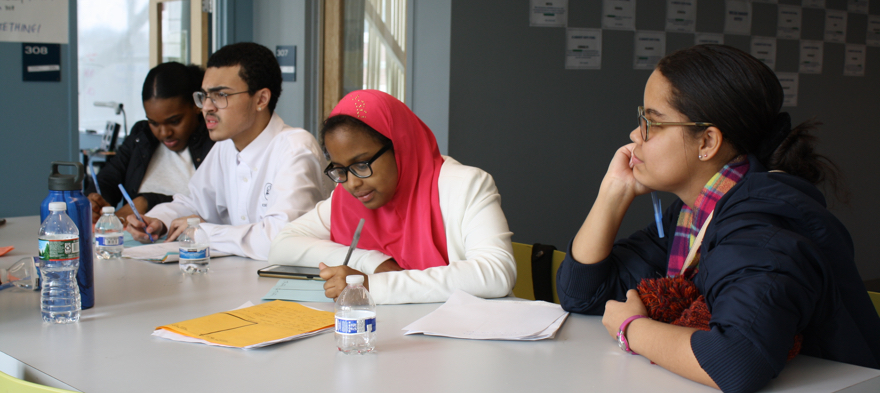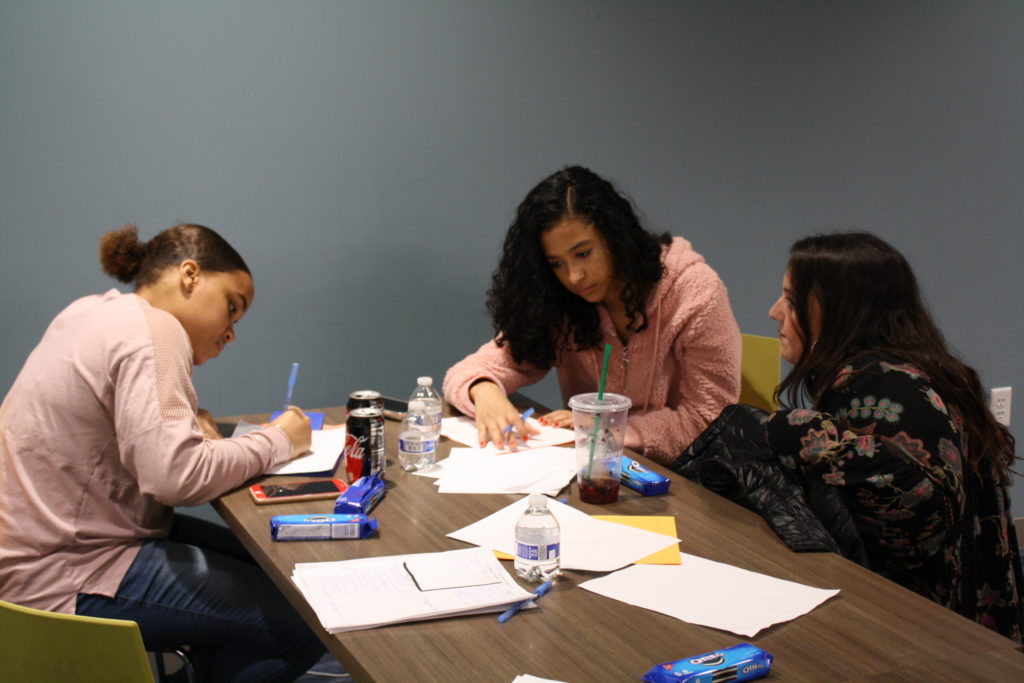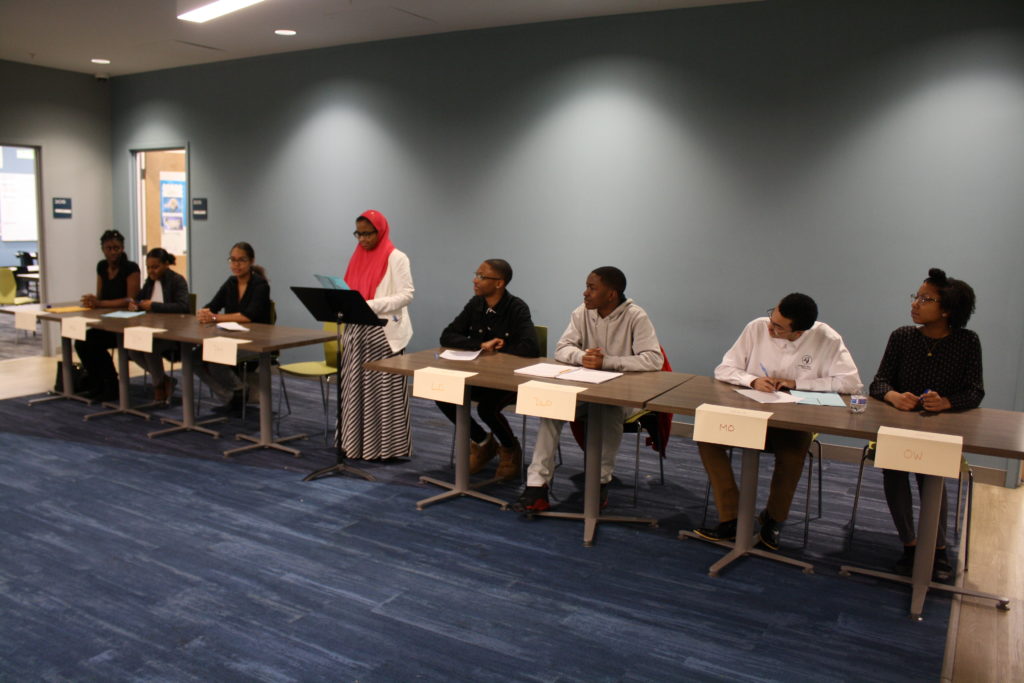
Jun 21, 2019 12:00:00 AM
After teaching middle and high school history for almost 15 years, I believe deeply that rigorous history education has the potential to empower young people to more meaningfully engage with the present. And what better way to grapple with history and its modern-day implications than through the art of debate.
In fact, as a recent New York Times op-ed observes, this art form may be just the thing to set our students up for success beyond high school. The skills kids learn from debate—public speaking, critical thinking, forming logical arguments, creativity, confidence—are important, if not necessary, for every facet of their lives.
But [pullquote position="right"]not all kids get access to extracurriculars like debate.[/pullquote] As a teacher, I decided to do something this year to change that for the kids in our school community and beyond.
Picture this: It’s a spring afternoon in New England. Murmuring moves through a group of students and staff who huddle closely and anxiously around a projection screen on the third floor of their public school building. A timer goes off. A staff member flips the screen to reveal a statement…
“This House believes that people need clean water more than they need good jobs.”
Students turn to one another, excited, hesitant, deep in thought and a bit uncertain. Conversations ensue as they open their phones to snap a picture of the statement and head off in pairs to discuss it.

This was the scene at Match Charter Public High School in Boston around four o’clock on Saturday, March 30. Despite the potential anxiety that comes with end-of-year “crunch time” and the palpable allure of spring break, 32 high schoolers showed up that morning to compete in the inaugural Match Charter Public High School British Parliamentary Debate Tournament.
In British Parliamentary debate, every student competes with a partner. Each partnership is called a team. This style of debate is extemporaneous: Students do not know what topic they are to debate until just 20 minutes prior to when they have to debate it. Thanks to the flexibility and trust that I’m afforded as a teacher at Match, I was able to bring this style of debate and establish Boston’s first charter public school debate league.
It all began shortly after returning from winter break this school year. A group of 13 juniors opted to take an early sunrise bus trip from Boston up to Lewiston, Maine to visit my alma mater, Bates College, to learn the ins-and-outs of British Parliamentary debate from the internationally ranked Bates debate team, the Brooks Quimby Debate Council.
Throughout the day, Match students and Bates debaters workshopped together, building arguments and presenting those arguments before their peers. Match students received constructive feedback from varsity Bates debaters, as well as from professor and director of debate at Bates College, Dr. Jan Hovden (who has coached Bates debaters to national and world championships). The event even attracted the attention of the Bates Office of Communications.
With the lure of competitive debate still lingering in students’ minds, a colleague and I ran an in-house debate tournament at Match High School in early February. We had 42 students representing the 10th, 11th, and 12th grade classes, as well as many members of the staff, convene for the inaugural Match House Cup British Parliamentary Debate Tournament. When we were able to get this many students to show up to school at eight o’clock on a Saturday morning in February (aka the middle of Boston winter!), we knew we had built a strong foundation from which we could expand our league to include other local, public charter high schools.

Fast forward to that Saturday in March and the inaugural Match High School British Parliamentary Debate Tournament. Unlike the Match students, many of the visiting students had never before participated in competitive debate, but that did not sway their confidence or dampen their competitive spirits. When asked about this new experience, Kevin Sanchez, an 11th-grade student from Roxbury Prep Charter Public High School, said, “At the beginning, I was a little nervous, but with every round, winning or not, I [was] gaining more confidence. I definitely want to do this again. It’s amazing.”
While the students, coaches and volunteer staff undoubtedly made the tournament tremendously successful, it wouldn’t have been possible without the trust and autonomy I received from Match to take an idea and run with it.
What happened this spring promises to be the start of something big. All students deserve access to opportunities that will help them unlock their potential. I can't wait to see where their debate skills take them next school year and beyond.
After graduating from Bates College with a degree in history in 2005, Andrew Jarboe joined Teach For America and taught history for three years at the middle and high school levels in Harlem, New York, while also earning his master's degree in teaching. In 2011, while completing his doctoral dissertation, he joined the faculty at Roxbury Preparatory Charter School. After four years teaching eighth grade US History, he joined the founding faculty at Roxbury Preparatory High School where he taught AP US History and ninth grade US History. Dr. Jarboe is also an Assistant Professor at Berklee College of Music.
Few issues in education spark more tension and debate than standardized testing. Are they a tool for equity or a burden on students? A necessary check on school systems or a flawed measure of...
Charter schools are public schools with a purpose. Operating independently from traditional school districts, they're tuition-free, open to all students, and publicly funded—but with more flexibility...
Despite the benefits of a diverse teaching force, prospective teachers of color fall out of our leaky preparation pipeline at every stage: preparation, hiring, induction, and retention. Here’s what...
Ed Post is the flagship website platform of brightbeam, a 501(c3) network of education activists and influencers demanding a better education and a brighter future for every child.
© 2020-2025 brightbeam. All rights reserved.
Leave a Comment